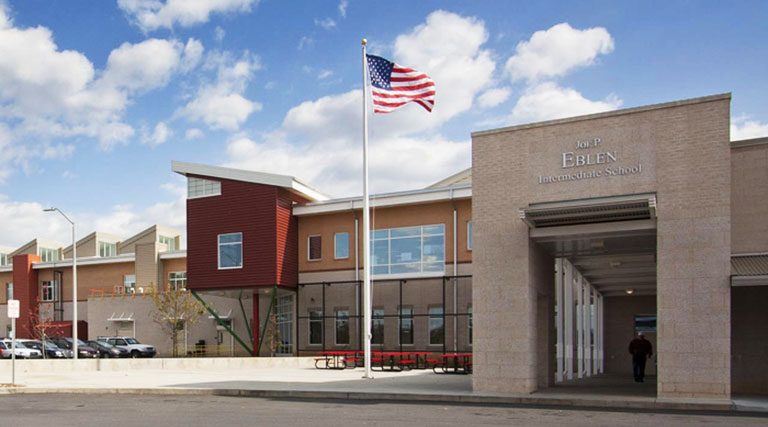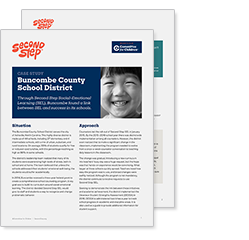Buncombe County, NC
Linking Social-Emotional Learning to Academic Success


Don’t be afraid to take a risk. Don’t be afraid to go out there and say this is the right thing to do. Because it’s right for kids.
David Thompson, Director of Student Services
Serving 44 schools in urban, suburban, and rural North Carolina, the Buncombe County School District received funding to improve academics and reduce problem behaviors in a way that addresses the whole child. In addition to implementing trauma-informed strategies, Second Step Social-Emotional Learning (SEL) was implemented in classrooms districtwide. Teachers are reporting, and early assessments indicate, a significant increase in social-emotional skills as well as academic achievement.
Case Study: Buncombe County School District
Situation
The Buncombe County School District serves the City of Asheville, North Carolina. This highly diverse district is made up of 44 schools, including 27 elementary and 4 intermediate schools, with a mix of urban, suburban, and rural locations. On average, 55% of students qualify for free or reduced-cost lunches, with this percentage reaching as high as 90% in some schools.
The district’s leadership team realized that many of its students were experiencing high levels of stress, both in school and at home. The team believed that unless the schools addressed their students’ emotional well-being, the students would suffer academically.
In 2014, Buncombe received a three-year federal grant to create a comprehensive school counseling program. A key goal was to build its curriculum around social-emotional learning. The district decided that Second Step SEL would give its staff and students a way to recognize and change problematic behavior.
Approach
Counselors led the roll-out of Second Step in January 2015. By the 2015–2016 school year, there was districtwide implementation among all counselors. However, the district soon realized that to make a significant change in the classroom, program implementation needed to evolve from a weekly counselor conversation to daily lessons taught in the classroom.
The change was gradual. Introducing a new curriculum into teachers’ busy day was a huge request, but the hope was that hands-on experience would be convincing. What began at three schools quickly spread. Teachers loved how easy Second Step was to use, and broad changes were swiftly noticed. Although the program is not mandatory, the district continues to receive requests to use it.
Seeking to demonstrate the link between these initiatives and academic achievement, the district implemented the Devereux Student Strengths Assessment (DESSA) in 2016. DESSA is administered two times a year to track school progress in academic and discipline areas. It is also used as a guide to provide additional information for student support.
With the grant in its last year (2017–18), the district is confident that the sustainability of Second Step will allow the curriculum to continue to have a positive effect on students.
Outcomes
In schools that used the Second Step program paired with other trauma-informed strategies, results indicated that they either met or exceeded growth as measured by state achievement tests. These schools also experienced decreased office discipline rates.
Data obtained from DESSA indicated that students at all schools had a significant increase in social-emotional skills, which Buncombe administrators say is likely a direct result of the program as the core social-emotional curriculum. When students move from school to school or grade to grade, Second Step provides a common language for speaking about critical issues.
Teachers report, and the data supports, that improved social-emotional skills are positively affecting student achievement at Buncombe County Schools.

